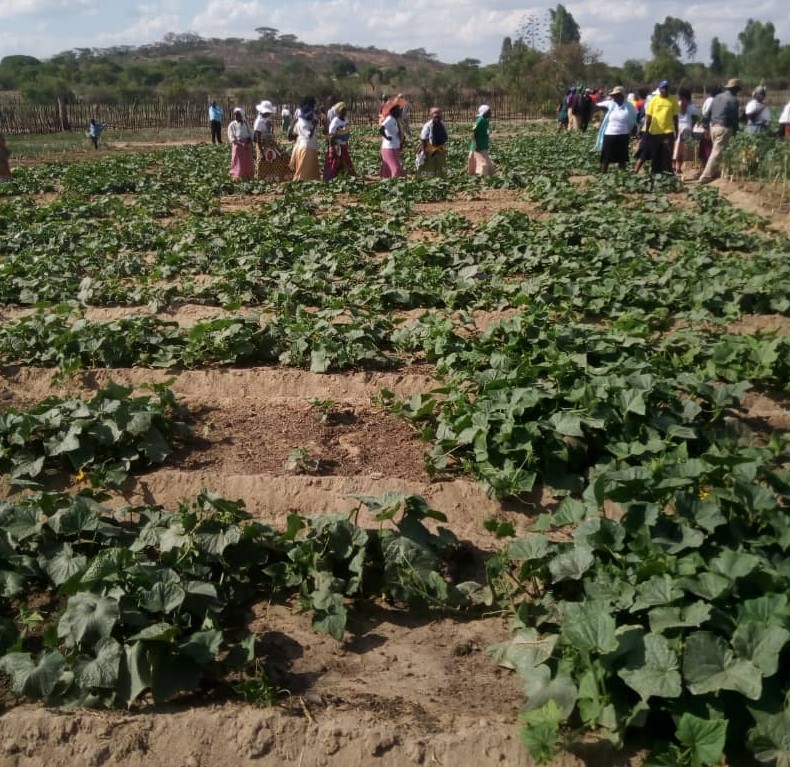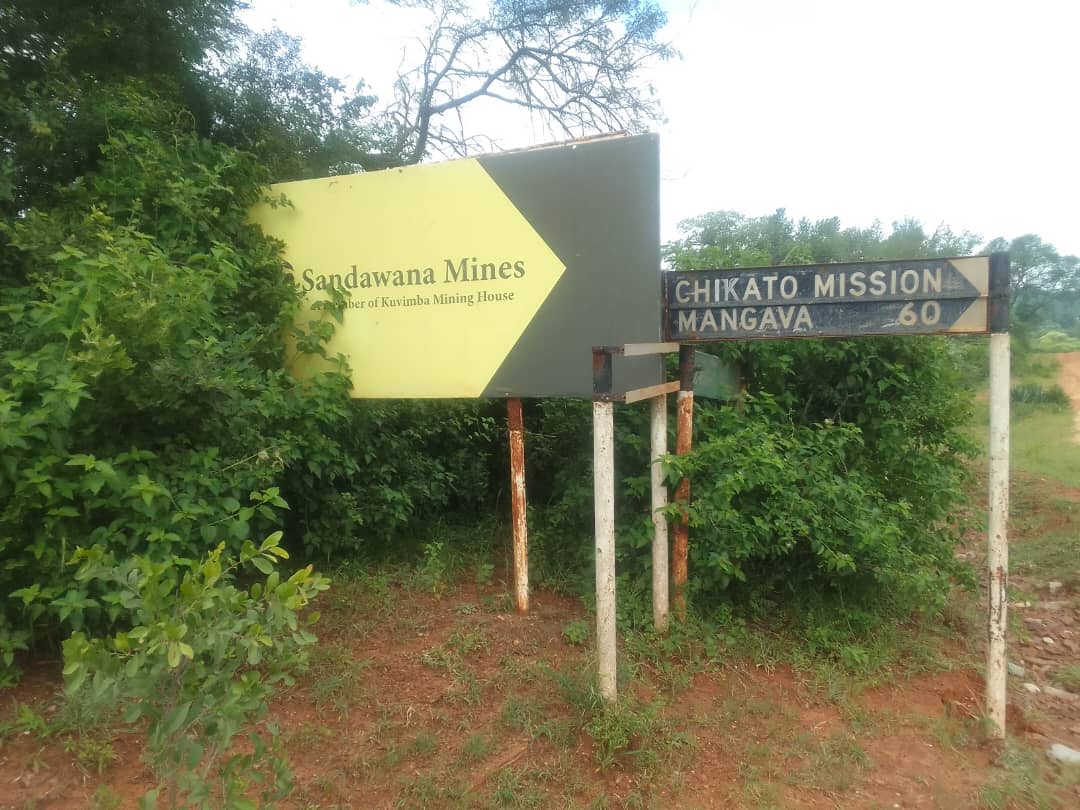Moses Ziyambi
In a province situated in the natural ecological regions 4 and 5 which the country’s driest, many communities of Masvingo are beginning to appreciate the need for smarter and more adaptive farming techniques that include community gardens.

Some of the new community gardens that are emerging are equipped with solar-powered boreholes, and this make them more adapted to the increasingly scarce water resources.
One such project is the Njovo Community Garden in Ward 18, Masvingo Rural District Council, where a variety of vegetables, for family consumption and for sale, is produced by close to 100 women.
The project was designed and managed by AquaCulture with support from the World Food Programme (WFP) and the United States Aid for International Development (USAID).
Irrigation water is released from a weir and travels by gradient into an underground storage tank downstream, from where it is hoisted by a solar-powered submersible pump into huge overhead tanks (colloquially known as Jojo tanks).
A labyrinth of piping delivers the water to the length and breadth of the garden which boasts a variety of vegetables including beans, sweet potatoes, king onions and covo. The vegetable beds are interspersed with fruit trees which get watered the very moment that the vegetables are watered.
A borehole was also drilled to supply potable water to the poultry project which raises the Sasso chicken breed.
“Sasso chickens are a duo-purpose breed which can be used for both eggs and meat. It grows faster than the traditional chicken breed and is less expensive to feed than the broiler. The manure generated here is used on the vegetable beds,” said project secretary Angeline Kamheni.
In early 2020, another such garden was built through self-community mobilization close to Mhandamabwe Business Centre, Ward 6 Chivi Rural District Council.

Its membership is drawn from a consortium of 30 families, much of it being women from the surrounding rural areas.
The locals worked with local ward Councillor Godfrey Mukungunugwa to install a 0.5 horsepower submersible pump which is powered by 2×80 watts solar panels that produce 24 volts of electrical energy.
The pump takes only 30 minutes to fill up a 5 000-litre water storage tank, and it also supplies a tap where people can draw potable water.
In a space of just over a year, the garden has become a source of livelihoods for 55 women and 37 men who now produce all sorts of vegetables for sale through-out the months.
“Some of our customers are women who operate restaurants and take-aways at Mhandamabwe and at Chivi Growth Point. Some people from as far as Madamombe and Madzivadondo also come to buy from us,” said Locardia Masendu, a member of the consortium.
Much of the produce from Mhandamabwe community garden are ordinary vegetables that include covo, cabbages, onions and tomatoes though there are many project members who are also doing green peppers and carrots.
In Mhene village, Masvingo Rural Ward 12, the Centre for Gender and Community Development (CGCDZ) supports dozens of women who run a lucrative horticulture project.
CGCZ operations manager Chida Mudadi said the increasingly erratic weather conditions meant that adaptive farming techniques have to be adopted to reduce unprofitable labour especially in rural areas where farmers predominantly rely on rainfall.
He said was promoting smart agriculture using machinery and technology to ensure sustainability of horticultural projects some of which are being run by elderly women who cannot participate in labour-intensive ventures.
“The thrust towards adopting machinery and technology is as a possible panacea to sustainability of projects in changing climatic conditions. For example, villagers can be more productive on smaller pieces of land planting vegetable with access to solar-powered boreholes,” said Mudadi.








